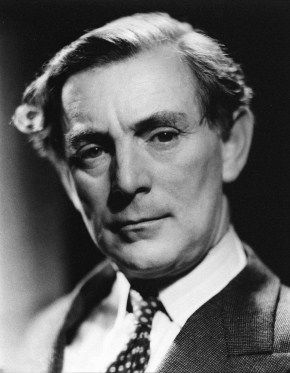The idea of the Scientific Revolution: invention, rejection, and renewal
Click here to download the powerpoint for this lecture
The idea of the Scientific Revolution has a long history. Already in the eighteenth century, philosophers such as Fontenelle and Condercet implied that a major transformation had recently occurred in man's understanding of nature. The phrase 'The Scientific Revolution' became common in the first half of the twentieth century, when philosopher-historians such as Edwin Burtt and Alexandre Koyré made the case for a fundamental and wide-reaching change in world view centred on the seventeenth century. This idea has since been attacked from many quarters: historians of Medieval science and nineteenth-century science, social historians of science, historians of magic, astrology, and natural history, and others. These attacks led many historians to abandon the idea in the 1990s. But historians continue to write textbooks with 'scientific revolution' in the title, and in 2015 no less than three new books were published in defense of the revolutionary character of early modern science. The debate continues because the idea of the scientific revolution is bound up with broader ideas about the nature of science, the nature of history, and the place of Europe in world history.
Seminar questions
What assumptions does Butterfield make about the nature of science?
Why do Cunningham and Williams dismiss the idea of the scientific revolution?
How does Cohen intend to defend this idea?
Essential reading
Butterfield, Herbert. The Origins of Modern Science, 1300-1800. London: Bell, 1949 - 'Introduction' and 'The place of the scientific revolution in the history of Western Civilisation' - see course extracts
Cunningham, Andrew, and Perry Williams. 1993. “De-Centring the ‘Big Picture’: ‘The Origins of Modern Science’ and the Modern Origins of Science.” The British Journal for the History of Science 26 (4): 407–32 - read up to page 420
Cohen, H. Floris. “Scientific Revolution.” In New Dictionary of the History of Ideas, edited by Maryanne Cline Horowitz, 5:2191–94. Detroit: Charles Scribner’s Sons, 2005 - Warwick e-resource
Further reading
Anstey, Peter. 2008. “Derevolutionizing Early Modern Science.” Metascience 17 (3): 389–96.
Cohen, H. 1994. The Scientific Revolution: A Historiographical Inquiry. Chicago, EUA : University of Chicago.
Cohen, I. Bernard. 1976. “The Eighteenth-Century Origins of the Concept of Scientific Revolution.” Journal of the History of Ideas 37 (2): 257–88.
Jardine, N. 1991. “Writing off the Scientific Revolution.” Journal for the History of Astronomy 22: 311–18.
Cunningham, Andrew, and Perry Williams. 1993. “De-Centring the ‘Big Picture’: ‘The Origins of Modern Science’ and the Modern Origins of Science.” The British Journal for the History of Science 26 (4): 407–32.
Damme, Stephane van. 2015. “Un Ancien Régime des sciences et des savoirs.” In Histoire des sciences et des savoirs, edited by Stephane van Damme. Vol. 1. Paris: Le Seuil
Lindberg, David. 1990. “Conceptions of the Scientific Revolution from Bacon to Butterfield.” In Reappraisals of the Scientific Revolution, edited by David C Lindberg and Robert S Westman, 1–26. Cambridge: Cambridge University Press.
Park, Katharine, and Lorraine Daston. 2006. “Introduction: The Age of the New.” In The Cambridge History of Science, vol. 3, edited by Katharine Park and Lorraine Daston, 1–18. Cambridge: Cambridge University Press.
Porter, Roy. 1986. “The Scientific Revolution: A Spoke in the Wheel?” In Revolution in History, edited by Roy Porter and Mikulas Teich, 290–316. Cambridge University Press.
Wootton, David. The Invention of Science. London: Penguin, 2015 - see the online 'Introduction'
Other works cited in this week's lecture
Burtt, Edwin. The Metaphysical Foundations of Modern Physical Science: A Historical and Critical Essay. London: Harcourt Brace, 1932.
Butterfield, Herbert. The Origins of Modern Science, 1300-1800. London: Bell, 1949.
Cohen, H. Floris. How Modern Science Came Into the World: Four Civilizations, One 17th-Century Breakthrough. Amsterdam University Press, 2010.
———. The Rise of Modern Science Explained: A Comparative History. Cambridge University Press, 2015.
Dijksterhuis, E. The Mechanization of the World Picture. Translated by C. Dikshoorn. Oxford University Press, 1961.
Duhem, Pierre. 1905-6 (first French edition). The Origin of Statics.
Duhem, Pierre, 1906 (first French edition). The Aim and Structure of Physical Theory.
Gillispie, Charles. The Edge of Objectivity: An Essay in the History of Scientific Ideas. Princeton N.J.: Princeton University Press, 1960.
Hall, A. Rupert. The Scientific Revolution, 1500-1800: The Formation of the Modern Scientific Attitude. London: Longmans, 1954.
Hankins, Thomas L, and Robert J Silverman. Instruments and the Imagination. Princeton, N.J: Princeton University Press, 1995.
Koyré, Alexandre. Études Galiléennes. 1939
———. “Galileo and Plato.” Journal of the History of Ideas 4, no. 4 (October 1943): 400–428.
———. From the Closed World to the Infinite Universe. Baltimore: Johns Hopkins Press, 1957.
Mach, Ernest. 1893 (first German edition, translated into English 1893). The Science of Mechanics: A Critical and Historical Exposition of its Principles.
Power, Henry, 1664. Experimental Philosophy.
Principe, Lawrence. The Aspiring Adept: Robert Boyle and His Alchemical Quest: Including Boyle’s “Lost” Dialogue on the Transmutation of Metals. Princeton, N.J: Princeton University Press, 1998.
Principe, Lawrence M. The Secrets of Alchemy. Chicago: University of Chicago Press, 2013.
Shapin, Steven. The Scientific Revolution. Chicago: University of Chicago Press, 1996.
Thorndike, Lynn. A History of Magic and Experimental Science. 8 vols. New York: Columbia University Press, 1923.

